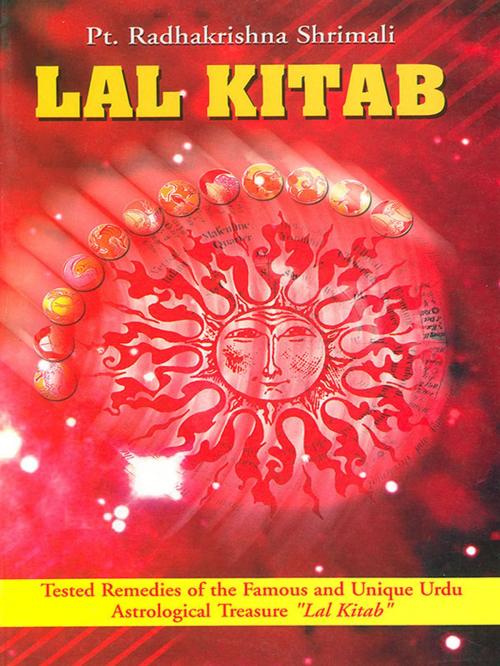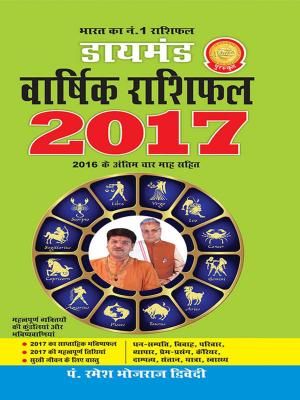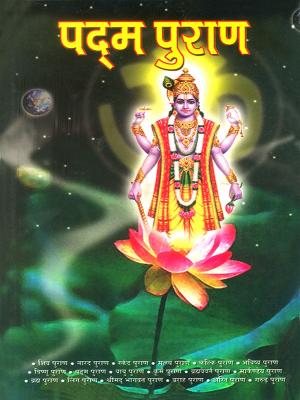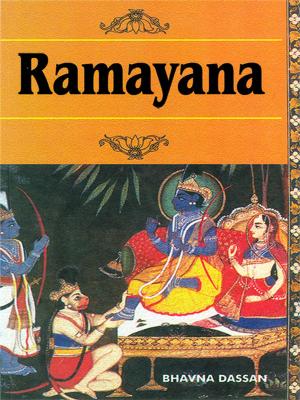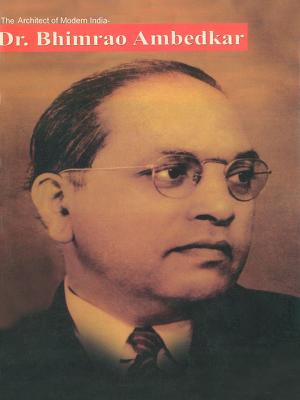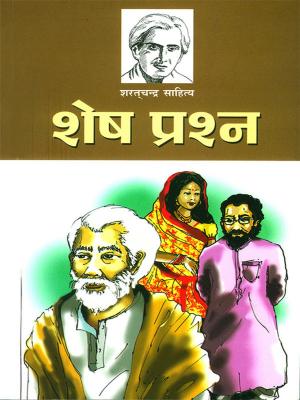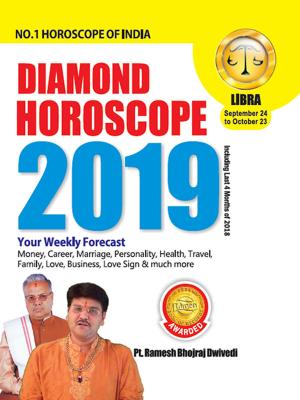| Author: | Pt. Radhakrishna Shrimali | ISBN: | 9789350830239 |
| Publisher: | Diamond Pocket Books Pvt ltd. | Publication: | October 17, 2016 |
| Imprint: | Language: | English |
| Author: | Pt. Radhakrishna Shrimali |
| ISBN: | 9789350830239 |
| Publisher: | Diamond Pocket Books Pvt ltd. |
| Publication: | October 17, 2016 |
| Imprint: | |
| Language: | English |
Who is not in distress in the present era? Some are anguished mentally, some physically, some by children, some by spouse. There is no harmony in the family as before. Everybody wants to cook one’s meal separately. The tradition of the joint family has already been shattered. One, who is in trouble, primarily wants freedom from it, be it only a minor wound. His first priority remains to get relief from the pain whatsoever it may cost. The author of Lal Kitab had understood this principle much earlier and created trials or remedies imbibing good conduct, righteousness and fundamental code of social and universal conduct along with the interweave of astrology so that the person might secure relief from the pain as well as remain connected with the societal customs.
Most of the people in India are very well acquainted with the name of ‘Lal Kitab Originally this book was written by Shri Girdhari Lal Sharma in Urdu language. Subsequently it was translated into Hindi language. Some adulteration is quite natural in the translated version of the original text. Primarily our rishi-maharshis, godmen, astrologers, fortune-tellers like Narad, Parashar, Kalidas, Varahmihir, Jaimini, Bhrigu etc. and the contemporary saints had prescribed yajna, hawan worship, chanting God’s name, rituals and donations to mitigate the bad effect of planets. Later on acknowledging the paucity of money and time, Shri Girdhari Lal Sharma, the author of the original Lal Kitab, proposed remedies that were simple and required least expense of money. These, easy remedies became very popular in India.
Keeping in mind a code of conduct, dharma, practical aspects, good conduct and the basic principles of life and the need for proper discipline in society, the author had suggested the remedies which were accepted by the common men by heart. For example, respect of elders, service to parents, offering grass to cow, offering bread to dog, feeding monkeys with gram and jaggery etc. are such remedies that can easily be done by everybody. The principality of twelve signs and nine planets of Indian astrology has also been accepted by Lal Kitab. The mere difference is that whereas in the prevalent astrology the ascendant is determined by the time of birth, Lal Kitab always keeps it between Aries and Pisces.
Who is not in distress in the present era? Some are anguished mentally, some physically, some by children, some by spouse. There is no harmony in the family as before. Everybody wants to cook one’s meal separately. The tradition of the joint family has already been shattered. One, who is in trouble, primarily wants freedom from it, be it only a minor wound. His first priority remains to get relief from the pain whatsoever it may cost. The author of Lal Kitab had understood this principle much earlier and created trials or remedies imbibing good conduct, righteousness and fundamental code of social and universal conduct along with the interweave of astrology so that the person might secure relief from the pain as well as remain connected with the societal customs.
Most of the people in India are very well acquainted with the name of ‘Lal Kitab Originally this book was written by Shri Girdhari Lal Sharma in Urdu language. Subsequently it was translated into Hindi language. Some adulteration is quite natural in the translated version of the original text. Primarily our rishi-maharshis, godmen, astrologers, fortune-tellers like Narad, Parashar, Kalidas, Varahmihir, Jaimini, Bhrigu etc. and the contemporary saints had prescribed yajna, hawan worship, chanting God’s name, rituals and donations to mitigate the bad effect of planets. Later on acknowledging the paucity of money and time, Shri Girdhari Lal Sharma, the author of the original Lal Kitab, proposed remedies that were simple and required least expense of money. These, easy remedies became very popular in India.
Keeping in mind a code of conduct, dharma, practical aspects, good conduct and the basic principles of life and the need for proper discipline in society, the author had suggested the remedies which were accepted by the common men by heart. For example, respect of elders, service to parents, offering grass to cow, offering bread to dog, feeding monkeys with gram and jaggery etc. are such remedies that can easily be done by everybody. The principality of twelve signs and nine planets of Indian astrology has also been accepted by Lal Kitab. The mere difference is that whereas in the prevalent astrology the ascendant is determined by the time of birth, Lal Kitab always keeps it between Aries and Pisces.
